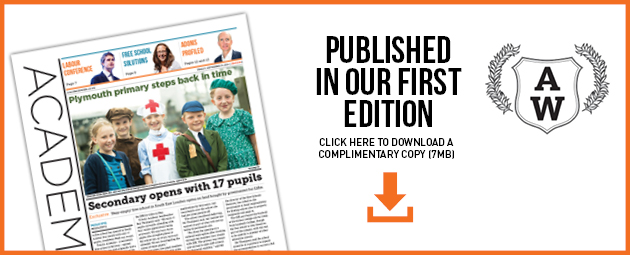EXCLUSIVE: Secondary opens with 17 pupils
‘Near empty’ free school in South West London opens on land bought by government for £18m
A free school has opened in South London this month with only 17 pupils, Academies Week can reveal.
Trinity Academy – a secondary free school in Brixton – opened two weeks ago and originally had a planned admission number of 120 children.
The low pupil roll comes against the backdrop of a secondary places surplus in Lambeth. According to Lambeth Council figures, the borough expected to have 226 more places this year than required.
The school has opened in a pre-existing building on the former Brixton Hill campus of Lambeth College.
The freehold was purchased by the DfE for £18m in May.
Trinity Academy headteacher Ben Thompson said: “We have 17 pupils currently attending with four recent applications being processed. We also have three pupils who accepted places at the school but, as of yet, have not attended. We are investigating the status of these pupils.”
In past years, low pupil numbers was among the reasons why some approved schools were cancelled or withdrawn, according to a National Audit Office report published last December.
Newham Free Academy was reported as being pulled a matter of weeks before it was due to open in 2012 because of low demand.
Mr Thompson said the school originally had more than 90 applications for 2014 entry, but uncertainty over the school site had put some parents off.
The school considered deferring, Mr Thompson said, but instead has opened on part of what will end up being its permanent site.
We have 17 pupils currently attending with four recent applications being processed
“We chose the opening on a reduced scale option after working through the numbers very closely with DfE. The process was robust and we had to meet stiff criteria for financial viability,” said Mr Thompson.
The Catholic-ethos school had a planned admission number of 120, though Mr Thompson said that the DfE had agreed that the school would not open with this many pupils.
The revelation comes at a time when Natalie Evans, the director of the New Schools Network, has called on the government to hand responsibility for finding school sites to property companies.
The DfE purchased the freehold of the former college site for £18m from Lambeth College, though the free school is only based on part of the campus, with the rest to be used for a number of other education centres.
Mr Thompson said the school would be in a position to expand the accommodation to recruit a full cohort next year.
A DfE spokesperson said: “It is perfectly normal for any type of new school to take time to fully establish itself and we fully expect pupil numbers to grow with the school over time.”
The DfE said that, once fully up and running, the free school would offer 840 places.
Responding to the news, Tristram Hunt, Shadow Education Secretary, said: “David Cameron’s free school programme has diverted millions of pounds away from areas that are desperately in need of new school places.
“Instead of addressing chronic shortages, money is being spent on new free schools that parents don’t want to send their children to.”
Councillor Imogen Walker, deputy leader of Lambeth Council, said: “We want every child in Lambeth to have the best education possible and a near-empty free school in an area that already has adequate provision will not help that aim in any way.”
EDITORIAL
Secondary school opens ‘near empty’
A school opening story is perhaps not surprising given the time of year, but with 17 pupils Trinity Academy could find itself in the unenviable position of being the smallest ever mainstream secondary school.
Despite late decisions over the £18m site, many will point to the predictability of a ‘near empty’ school given the borough already had more than 200 surplus places.
But this misses the point as in the longer term a surplus might become a deficit and some allege that competition drives up education standards.
What’s important about this story is that the government decided to proceed with opening at all.
While under-recruitment at a new schools is not unheard of, hadn’t the DfE tightened up on allowing such inefficient funding agreements?
Clearly finding a site for the Trinity Academy proved a major challenge, and free school locations remains a hot topic.
It is then perhaps not surprising, although entirely coincidental, that Natalie Evans from the New School Network makes some sensible suggestions as to how the government purchase sites and school buildings in future.
Nick Linford, editor








Proving so called “free” schools are collossally expensive and built where they are clearly not needed. Criminal waste of public money. Devolution needed for Local Authorities and councils now!
on the bright side, Lambeth College are retaining a large part of the site, so at least the community will benefit from new state-of-the art facilities.
Lambeth College is retaining about a quarter of the site in fact. The DfE should have just given the £18 million to Lambeth College instead of buying most of the site with it, to renovate the existing buildings most of which which were designed when architects understood the psychological importance of natural light and fresh air to human existence. The new buildings the college has built in recent years are monuments to cave-dwelling and air-conditioning.
Correct me if I am wrong but when I attended Lambeth College on Brixton Hill it was in South West London, not South East! [good spot – thanks. Ed]
I suspect that Lambeth Council’s use if the word ‘surplus ‘ school places does not take into account the numbers of Lambeth primary school pupils who attend a secondary school outside the borough. How many are there annually? Why? Is this number increasing?